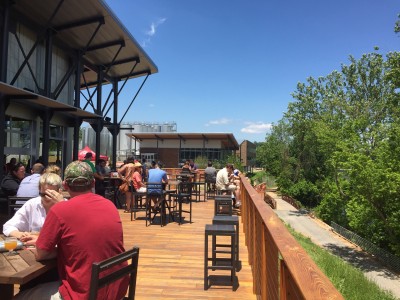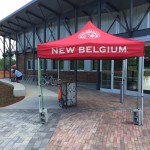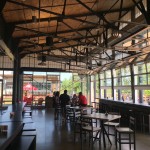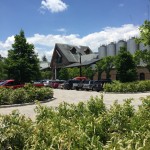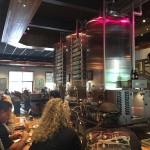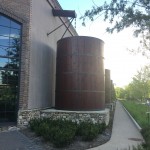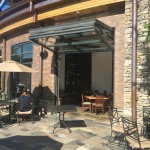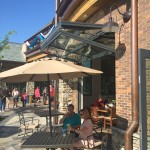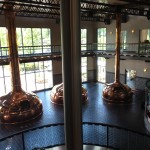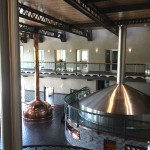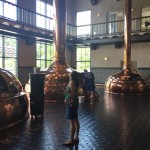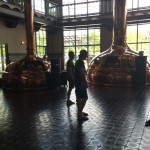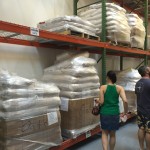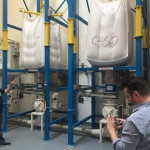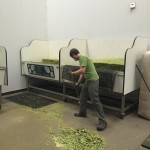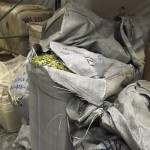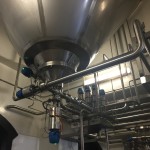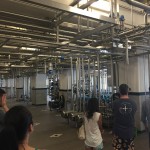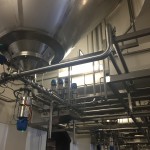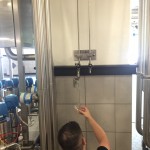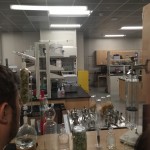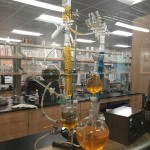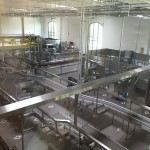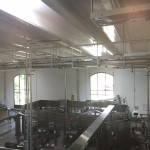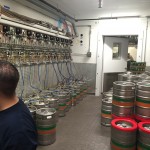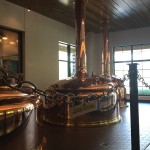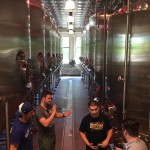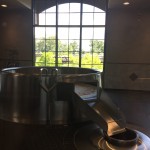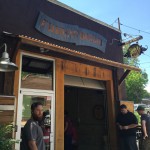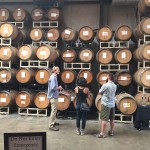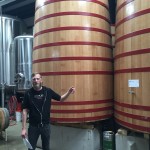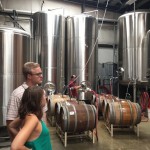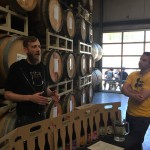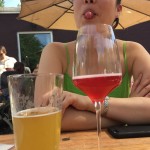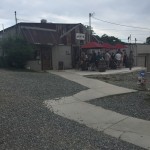Lately, it’s been pretty hard to ignore the acquisitions of an increasing number of beloved craft breweries by Big Beer (i.e. AB InBev, Heineken, Kirin, Constellation Brands, and San Miguel Corporation) and Big Equity (e.g. Firemen Capital, LNK Partners, etc.). I’ve been following this topic pretty closely for the last few years, but have avoided writing about it mainly because:
- The purchases felt like minor losses, especially when there are still so many awesome independent craft breweries to choose from.
- Frankly, there are more important things to be angry about.
- Being a middle-of-the-road kind of guy, I try to see (and appreciate) all sides of the coin.
That said, with the frequency and magnitude of acquisitions now occurring, I decided it was finally time to throw in my two cents. The writing has been on the wall ever since Goose Island sold to Anheuser-Busch in 2011, but the recent purchase of Wicked Weed seems to have stirred a bit more public awareness and perhaps even revolt, especially within the craft beer community. Unfortunately, the convoluted nature of brand ownership in the beer world makes it difficult for the average beer consumer to decipher exactly what they are purchasing and to whom their money is going. This confusion is precisely what Big Beer is looking to exploit—and why spreading the message of why craft beer consolidation matters is imperative.
AB InBev, with the acquisition of more than 10 craft breweries so far, has been the most active buyer. This is particularly troubling as AB InBev already controls nearly 45% of the beer market, owns much of the distribution infrastructure in the country, and recently purchased SAB Miller, further growing their dominance. The fact of the matter is that the broader beer category is hemorrhaging market share to wine and spirits, especially within the millenial demographic. This shift in taste has further exacerbated for Big Beer the fact that the minuscule market share that craft once represented has grown to over 12% by volume and now represents a tangible threat. They are desperate to turn things around and are spending substantial resources to reclaim the market share that has been lost to craft beer.
AB InBev is not just simply purchasing craft brewers. They are launching a strategic, multi-pronged assault that includes ZX Ventures, a “global disruptive growth firm”, and “The High End”, a division focused specifically on the craft segment. Beyond acquiring actual breweries, they have also created or purchased interest in media outlets, obscuring the lines between advertising and independent beer journalism. Websites such as The Beer Necessities, October, and Ratebeer, which are either owned (partially or completely) or funded by AB InBev, work to further AB InBev’s agenda by eroding the once obvious divide between craft and Big Beer. To quote the editor of The Beer Necessities, Ethan Fixell:
Throughout the years I’ve observed the massive shift in the marketplace: from a monochrome array of limited options, to an explosive availability of craft selections, eventually leading to a wide schism between “craft” and “macro.” Now, given the growth and merging of so many breweries big and small, and the naturally collaborative, collegial nature of all brewers, we seem to be living in a post-craft world: great beer is great beer. And I believe we should celebrate all of it.
AB InBev drove the creation of the “monochrome array of limited options” that Fixell laments. The wide schism between “craft” and “micro” that he cites hurts only Big Beer and is a reaction against the way they do business. AB InBev is trying to create the illusion of choice in the beer aisle, but when the wizard’s curtain is pulled back, all that is found is varying shades of AB InBev red and gold. To simply say that “great beer is great beer” is an overly simplistic approach to a highly nuanced subject. AB InBev is seeking a post-craft world. Let’s not let them have it.
It’s time to defend craft beer.
Why am I so angry?
Over the past few years, I’ve played around with the idea of opening a brewery. As this effort becomes more focused, I’ve been studying the strategy and mechanics of why and how craft beer has been able to go through such tremendous growth over the past decade. Specifically, I’ve been delving into branding strategy as it relates to starting and running a successful craft brewery.
What has become incredibly clear is that these recent acquisitions are a strategic assault on the craft beer identity. There is tremendous equity in the brand identity of being a craft brewer and the types of mental short cuts this identity provides the consumer. The biggest differentiators that craft breweries have over Big Beer are that they are typically small-scale business offering products with better ingredients and flavor, usually from a local source. Big Beer is intent on taking on these same attributes, blurring the lines of what it means to be craft and eroding the very roots of the industry. If these boundaries are allowed to dissolve and lose meaning a key advantage that craft has over macro will be lost.
I’m also angry because Big Beer is trying to pull the wool over the consumer’s eyes. And they think we’re dumb enough to fall for it. They want us to believe that the source of the product has no meaning as long as the beer doesn’t change. They’re being deceptive in the sense that they are creating levels of separation from their core company via subsidiaries and utilizing unclear labeling that prevents consumers from being able to decipher the provenance of their beer. None of the websites of AB InBev’s acquisitions describe their true ownership on their ‘About’ or ‘History’ pages. Most people have no idea that when they buy a Goose Island, Elysian, Blue Point, or Golden Road beer, they’re actually buying an AB InBev product. Consumers deserve to have more transparency so they can make informed decisions.
At the same time, Big Beer is diluting the true value of craft. If you are AB InBev, it is a buyer’s market as they are the only company around that is big enough to make these types of purchases. Big Beer is auditing the heavily populated craft beer landscape and acquiring breweries to fill the gaps in their already expansive portfolios. At first glance, it seems breweries are selling out for huge amounts of money. In reality, however, these sums are minuscule compared to the true value an established brand provides to a company like AB InBev.
It is also important to recognize that macro brewers do not play on the same field as craft brewers. A massive percentage of beer distributors in this country are affiliated or owned by Big Beer. This puts real craft breweries represented by the same distributors at a massive disadvantage, forcing them to compete directly with craft-like brands that are now owned by both the distributor and brewery. With the addition of heavily publicized incentive programs, it becomes very difficult for real craft brands to gain any sort of distribution, especially in the high volume grocery and restaurant chains served by these distributors. Ultimately, this will limit the consumers shopping at mainstream outlets to macro beers or craft brands owned by Big Beer. This threat will be particularly tough on established regional craft breweries that in recent years saw significant growth in chain restaurants and grocery stores. According to the Brewers Association, this is already being seen, with 15 of the largest 25 craft breweries dropping production volumes in 2016 versus 2015.
Lastly, it is important to consider the dynamics associated with the pricing of beer. Craft-like brands owned by Big Beer will always be the cheapest option on the shelf. There is simply no way a craft brewery producing low volumes could ever compete on price with a brewery producing millions of barrels annually. Economies of scale in terms of ingredients play a big role, but more important are the costs of labor associated with production. The labor required to produce a set volume of beer within a small craft brewery is exponentially more than what is required in a large-scale macrobrewery. This unfortunately leads to a higher cost for the beer consumer if they what to purchase from an independent small craft brewery. This disparity in labor is the key driver of growth in brewery jobs, often extolled as one of the great positives of craft beer. Bargain priced craft-like options will be attractive to many consumers, especially those that don’t know what they’re buying. This will result in the failure of many craft breweries attempting to compete within these same outlets.
But what about the reasons given by the acquired craft breweries?
When a former craft brewery sells out, there is a predictable blitz of spinning that occurs as the newly acquired brand scrambles to explain their reasoning and assure their loyal customer base that the brand they support isn’t going to change. The campaign is almost formulaic, hitting on all of the concerns that Big Beer perceives will be on the mind of their new customers.
First, they will always reassure their customer base that the beer is not changing. As a matter of fact, if anything, the beer will get better because of the tremendous technical resources now available to the brewery via the acquisition. This preys on the belief of many consumers that the only thing that matters is the beer in the glass. Yes, qualitatively, I’d wager to say that the beer does stay the same. But I also argue that the source of the beer is much more important than what happens to be in your glass at any given moment. The choices we make buying a given beer today will ultimately drive and determine the beer options we will have in the future.
Another common reassurance is that being owned by Big Beer will make them better stewards of their community. The resources inherent to Big Beer will make them better local citizens. I’ve yet to see proof of this type of Big Beer altruism, but would love to be proven wrong. The fact is that buying from small local businesses keeps the money, jobs, and altruistic endeavors that many of these breweries participate in local.
The most common justification for selling out is the perceived need for a huge capital infusion to fuel a brewery expansion. Yes, funding a massive brewery expansion in an efficient manner is extremely expensive and out of the means of all but the largest craft brewers. I’d, however, ask whether or not expansion needs to always be so swift and in such fell swoops. I’d wager that incremental growth is a perfectly healthy way to operate a craft brewery and that the need for quick expansion and massive growth has more to do with ownership’s personal ego than viability as a company.
Do I begrudge those that sell out?
On the surface, it seems difficult to begrudge a brewery that works hard, sells out, and is able to collect a windfall of capital. The fault seemingly lies solely with the purchaser who has made an offer that simply cannot be refused. The seller is simply grabbing the brass ring. This was an opinion I held until very recently when it occurred to me that selling out is not just about the business transaction. Selling out to Big Beer is a conscious decision that simultaneously devalues craft and violates the moral character upon which the community is built.
Every craft brewery that starts up builds their identity around that of being a ‘craft brewer’. This identity conjures up a very specific meaning in the mind of the consumer. It offers a mental shortcut to a plethora of valuable associations that directly affect a consumer’s purchase decisions. Craft means high quality, flavorful beer, independent, artfully crafted, local, small, anti-corporate,… There is tremendous value in the ability to use this imagery to build and grow a business. I would argue that taking on the identity of ‘craft brewer’ morally obligates you to act as a steward of the craft identity and the community from which it was born. Selling out to Big Beer is a fundamental betrayal to the craft community that directly contributes to the devaluation and confusion of the craft identity, threatening its very existence.
On the other side of the coin, it’s hard to fault the Big Beer companies. They are simply doing what they’ve always done. They are large, faceless corporations and are behaving as such. They are facing declining market share in a segment that is already contracting and reacting in an appropriate manner. They are not morally obligated to the protection of the craft identity the same way craft brewers are.
The recent purchase of Wicked Weed brought to the forefront these types of ethical and value questions facing the craft community. Public statements from Jester King and The Rare Barrel helped renew some of my personal faith that craft holds itself to a higher standard than Big Beer.
With that said, we have some core principles that define who we are as a brewery, and those principles must not be compromised. One of our core principles is that we do not sell beer from AB In-Bev or its affiliates. We’ve chosen this stance, not because of the quality of the beer, but because a portion of the money made off of selling it is used to oppose the interests of craft brewers. In Texas, large brewers (and their distributors) routinely oppose law changes that would help small, independent brewers. We choose not to support these large brewers because of their political stances, and in some cases, their economic practices as well.
– Jester King’s (Blog)
It’s about values.
Yesterday, Wicked Weed announced that they are selling their brewery to the megabrewery AB InBev (Budweiser, Shock Top). Here at The Rare Barrel, we’ve made a decision not to serve, collaborate with, or affiliate with AB InBev because our values do not align with theirs.
– The Rare Barrel (Via Instagram)
What does the future hold?
A key brand identity attribute that makes craft beer attractive to many consumers is the fact that it is produced locally. This is an important factor for many consumers and an attribute I foresee the new craft-like Big Beer brands having a tough time owning. In order to develop this dimension, Big Beer will use their immense financial resources to open up local outposts of the craft brands they own, often in the form of local taprooms or brewpubs. These new establishments can be loss leaders for Big Beer as they provide broader value by reinforcing the local dimension of their brand’s identity. At the same time, they will poach business from local craft breweries that often rely on high-margin taprooms for their viability.
As Big Beer fills out their portfolio of brands to include every fathomable beer style, we’ll likely see less and less non-Big Beer craft brands being sold in large volume stores, restaurants, bars, and entertainment venues. For these establishments, beer buying is a chore now simplified as they can go to a single distributor to purchase the roster of beer styles they’ll be needing.
What Can We do About it?
The pessimist in me, says there is very little we can do to prevent Big Beer from stunting the growth of independent craft beer. The resources Big Beer has at their disposal are simply too great to overcome. It’s not that people don’t care, it’s that the majority of consumers simply aren’t able to tell the difference between a craft-like brand owned by Big Beer and a truly independent craft beer. If you’re reading this blog, you’re like me, a niche within a niche that unfortunately has a pretty small collective voice. What we do have is a lot of friends outside of our niche to whom we can share the story of the David and Goliath struggle that is craft beer and why it should matter to them. We must effectively and politely communicate not only the truth about where the money from craft-like purchases are going, but also the effect it has on the broader craft market and our local communities. The more people we can educate, the bigger the impact we’ll have on purchase decisions and Big Beer’s bottom line. The only way to turn the tide is to make Big Beer’s current efforts an overwhelmingly failed experiment.
Craft-Like Brands Owned in Part or Full by Big Beer
Below we’ve outlined the breweries that we know of who have sold their companies in full or partially to other larger brewing companies. Please note that I’ve made this list as comprehensive as possible. Please let me know of any errors or omissions and I will update.
| Brewery | Owner | Acquired | Notes |
| 10 Barrel Brewing | AB InBev | 2014 | New brewpub locations since acquisition: Boise, Denver, Portland, San Diego |
| Bass | AB InBev | | |
| Blue Point Brewing | AB InBev | 2014 | |
| Breckenridge Brewery | AB InBev | 2015 | |
| Devils Backbone Brewing | AB InBev | 2016 | |
| Elysian Brewing | AB InBev | 2015 | |
| Four Peaks Brewing | AB InBev | 2015 | |
| Franziskaner | AB InBev | | |
| Golden Road Brewing | AB InBev | 2016 | Opening additional outposts in Sacramento and Oakland. |
| Goose Island Beer Company | AB InBev | 2011 | |
| Hoegaarden | AB InBev | | |
| Leffe | AB InBev | | |
| Shock Top Brewing | AB InBev | | Craft-like Brand Developed In House |
| Spaten | AB InBev | | |
| Wicked Weed Brewing | AB InBev | 2017 | |
| 21st Amendment Brewery | Brooklyn Brewery / Kirin Holdings | 2017 | Brooklyn Brewery has a minority investment in 21st Amendment. |
| Funkwerks | Brooklyn Brewery / Kirin Holdings | 2017 | Brooklyn Brewery has a minority investment in Funkwerks. |
| Dundee Brewing | Cervecerίa Costa Rica | | In 2012 North American Breweries sold to CCR by private equity firm KPS Capital Partners. |
| Genesee Brewing Company | Cervecerίa Costa Rica | | In 2012 North American Breweries sold to CCR by private equity firm KPS Capital Partners. |
| Magic Hat | Cervecerίa Costa Rica | | In 2012 North American Breweries sold to CCR by private equity firm KPS Capital Partners. |
| Pyramid | Cervecerίa Costa Rica | | In 2012 North American Breweries sold to CCR by private equity firm KPS Capital Partners. |
| Ballast Point | Constellation Brands | 2015 | Rumored to have sold for more that 1 billion dollars. |
| Kona Brewing Company | Craft Brew Alliance | | 32% owned by AB InBev. |
| Omission Beer | Craft Brew Alliance | | 32% owned by AB InBev. |
| Redhook Brewery | Craft Brew Alliance | | 32% owned by AB InBev. |
| Widmer Brewery | Craft Brew Alliance | | 32% owned by AB InBev. |
| Wynwood Brewing | Craft Brew Alliance | 2016 | 32% owned by AB InBev. CBA has a 24.5% ownership stake. |
| Boulevard Brewing Company | Duvel Moortgat Brewery | 2014 | |
| Brewery Ommegang | Duvel Moortgat Brewery | 2013 | |
| Firestone Walker Brewing Company | Duvel Moortgat Brewery | 2015 | |
| Lagunitas Brewing | Heineken International | 2015-2017 | 50% stake in 2015, 100% in 2017. Have begun opening a number of satellite breweries. |
| Brooklyn Brewery | Kirin Holdings | 2016 | Kirin has a 24.5% ownership stake. Kirin also has a sales partnership with AB InBev in the U.S. related to the distribution of Kirin Ichiban. |
| Independence Brewing Company | Lagunitas U.S. Holdings | 2016 | Undisclosed ownership stake. |
| Moonlight Brewing Co. | Lagunitas U.S. Holdings | 2016 | Undisclosed ownership stake. |
| Southend Brewery and Smokehouse | Lagunitas U.S. Holdings | 2016 | Undisclosed ownership stake. |
| Short's Brewing Company | Lagunitas U.S. Holdings | 2017 | 19.99% ownership stake. |
| Founders Brewing | Mahou-San Miguel | 2014 | 30% ownership stake. |
| Avery Brewing Company | Mahou-San Miguel | 2017 | 30% ownership stake. |
| Blue Moon Brewing | MillerCoors | - | Craft-like Brand Developed In House |
| Hop Valley Brewing | MillerCoors | 2016 | |
| Leinenkugel's Brewery | MillerCoors | 1988 | |
| Revolver Brewing | MillerCoors | 2016 | |
| Saint Archer Brewing | MillerCoors | 2015 | |
| Terrapin Beer Company | MillerCoors | 2016 | |
| Anchor Brewing Company | Sapporro | 2017 | |
Craft Brands Owned in Part or Full by Private Equity
Below we’ve outlined the breweries that we know of who have sold their companies in full or partially to private equity firms. Please note that I’ve made this list as comprehensive as possible. Please let me know of any errors or omissions and I will update.
| Brewery | Owner | Acquired | Notes |
| Southern Tier | Artisanal Brewing Ventures | 2016 | Victory and Southern Tier joined to form Artisanal Brewing Ventures (ABV), a private-equity backed holding company. |
| Victory Brewing | Artisanal Brewing Ventures | 2016 | Victory and Southern Tier joined to form Artisanal Brewing Ventures (ABV), a private-equity backed holding company. |
| Full Sail Brewing Company | Encore Consumer Capital | 2015 | |
| Abita Brewing Company | Enjoy Beer LLC | 2015 | |
| Cigar City | Fireman Capital Partners | 2016 | Undisclosed majority share. |
| Oskar Blues | Fireman Capital Partners | 2015 | Undisclosed majority share. |
| Squatters / Wasatch | Fireman Capital Partners | 2012 | Undisclosed majority share. |
| Dogfish Head | LNK Partners | 2015 | 15% Ownership Stake |
| Uinta Brewing Company | Riverside Company | 2014 | |
| BrewDog | TSG Consumer Partners | 2017 | 22% Ownership Stake |
Other Entities with ties to Big Beer
Northern Brewer / Midwest Supplies
In 2016, AB InBev via their ‘Disruptive Growth’ investment group ZX Ventures purchased one of the largest homebrew suppliers in the country. It is perplexing what interest AB InBev has in the homebrew market. My suspicion is that they are mining data. Homebrewers tend to be on the leading edge of trends in beer and Northern Brewer is able to provide deep pools of this data type.
Rate Beer
In 2017, it came out that AB InBev’s ZX Ventures had purchased a minority share in Rate Beer. Since this news has come out, several breweries including Dogfish Head and Black Project have requested removal from the ratings site.
The Beer Necessities
TBN is produced by ‘The High End’ division of AB InBev and produces craft beer centric articles and other content.
October
October is an online magazine ‘supported’ by AB InBev’s ZX Ventures and led by Conde Nest, Good Beer Hunting, and BeerGraphs.
Vice: Beerland
A TV show featuring homebrewers across the country seems pretty cool, right? It gets a little fishy when you consider it is hosted by Meg Gill, formerly of Golden Road, now AB InBev. The show has been promoted by The Beer Necessities, which discloses the fact that the show was produced as a partnership between AB InBev’s The High End and Vice Media.
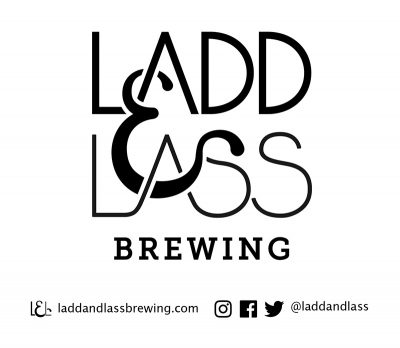 I have a confession. When I started this blog nearly six years ago I secretly hoped that one day I’d be able to use the knowledge gained authoring this blog, developing new recipes, and honing my brewing techniques to go pro and open a brewery of my own. So it is with incredible excitement (and a healthy dose of anxiety) that I am announcing that my wife, Jessie, and I are opening Ladd & Lass Brewing.
I have a confession. When I started this blog nearly six years ago I secretly hoped that one day I’d be able to use the knowledge gained authoring this blog, developing new recipes, and honing my brewing techniques to go pro and open a brewery of my own. So it is with incredible excitement (and a healthy dose of anxiety) that I am announcing that my wife, Jessie, and I are opening Ladd & Lass Brewing.
